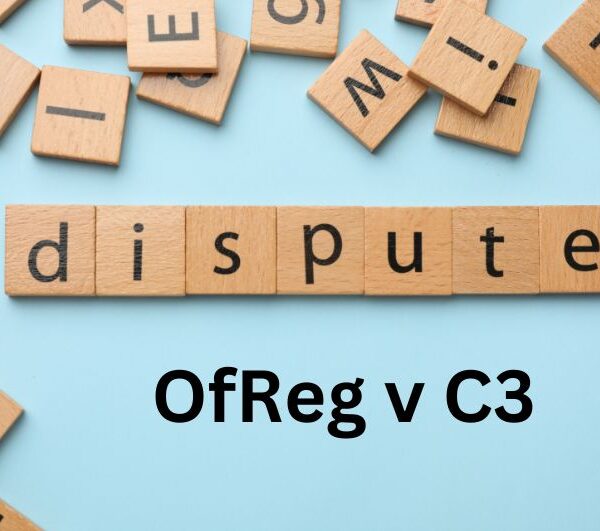
|
Getting your Trinity Audio player ready...
|
By Alric Lindsay
According to an order dated December 20, 2024, the Securities & Exchange Commission (“Commission”) issued cease-and-desist proceedings against Tai Mo Shan Limited, a Cayman company, concerning alleged United States Securities Act violations. These alleged violations relate to Tai Mo Shan’s alleged offering and reselling of LUNA as securities into the market on U.S.-based crypto asset trading platforms through the use of interstate commerce when no registration statement was in effect and no exemption from such registration applied. In addition, it was alleged that investors were deceived about the efficacy of Terraform’s arbitrage mechanism, which the public believed (based on Terraform’s prior statements) solely maintained UST’s peg to the U.S. dollar. Tai Mo Shan was ordered to pay a disgorgement of $73,452,756, a prejudgment interest of $12,916,153, and a civil money penalty of $36,726,378 to the Securities and Exchange Commission.
The allegations
Securities Act
Based on the order, Tai Mo Shan is a wholly-owned subsidiary of Jump Crypto Holdings LLC and was not registered with the Commission in any capacity.
Regarding this, the order explained:
Beginning in November 2019, Tai Mo Shan entered into agreements with Terraform, the issuer of LUNA, pursuant to which Tai Mo Shan would receive LUNA crypto assets being offered and sold as securities in exchange for providing services.
Rather than receive a fee for its services, under these agreements, Tai Mo Shan obtained a loan of LUNA from Terraform, through which Tai Mo Shan received a large number of LUNA for a period of time, typically two years, after which Tai Mo Shan had the option of returning the tokens at no cost or purchasing the loaned tokens at the price specified in the agreement.
The order added:
Tai Mo Shan’s services included activities typical of a statutory underwriter; that is, acting as a “conduit[] for the transfer of securities to the public.”
Specifically, Tai Mo Shan acquired LUNA, which was offered and sold as a security, from Terraform in or around the time it was first made available to the public.
The order continued:
Tai Mo Shan entered into its first agreement to acquire LUNA on November 19, 2019, approximately seven months after LUNA’s April 24, 2019, launch on the Terra blockchain, but prior to its wider public availability on crypto asset trading platforms.
Tai Mo Shan acquired certain LUNA crypto assets offered and sold as securities with a view toward distribution, as evidenced by the fact that Tai Mo Shan offered and resold LUNA as securities into the market on U.S.-based crypto asset trading platforms, shortly after acquiring the crypto assets from Terraform.
From January 2021 to May 2022, Tai Mo Shan facilitated the distribution of LUNA offered and sold as securities by engaging in one-sided trading strategies on U.S.-based crypto asset trading platforms designed to liquidate its LUNA holdings acquired from Terraform by transferring those securities to the public and adding to LUNA’s circulating supply. Tai Mo Shan profited from these transactions.
The order concluded:
As a result of the conduct described above, Tai Mo Shan violated Sections 5(a) and 5(c) of the Securities Act because Tai Mo Shan directly or indirectly offered and sold crypto assets being offered and sold as securities on U.S.-based crypto asset trading platforms through the use of interstate commerce when no registration statement was in effect and no exemption from such registration applied.
Purchasing UST & Misleading Investors About Arbitrage System
In addition to the foregoing, it was alleged that “In May 2021, Tai Mo Shan acted negligently by engaging in a course of conduct that caused investors to be deceived about the efficacy of Terraform’s arbitrage mechanism, which the public believed—based on Terraform’s prior statements—solely maintained UST’s peg to the U.S. dollar.”
The order explained:
UST was a crypto asset that Terraform designed to maintain a one-to-one peg to the U.S. dollar, by virtue of an algorithm coded into the Terraform blockchain that tied the value of UST to LUNA.
The algorithm was intended to provide an arbitrage opportunity for traders to keep the price of UST pegged at $1. If, for example, the market price of UST dropped to $0.95, traders could buy UST at that price and exchange each UST for $1 worth of LUNA by “burning” the UST and “minting” the LUNA through the algorithm. In theory, this process would reduce the supply of UST and increase its price until it reached a dollar.
The order added:
While the value of UST was intended to stay at $1, the value of LUNA could, and did, increase as more investors engaged with the Terraform ecosystem.
On May 23, 2021, the price of UST began to sharply fall below its $1 peg. At that time, Tai Mo Shan and Terraform entered into a verbal agreement whereby Terraform agreed to fully vest the remaining portion of LUNA that was owed to Tai Mo Shan pursuant to its loan agreements with Terraform.
Tai Mo Shan made purchases of UST on May 23, 2021 and subsequent days, in a manner that diverged from its historic trading pattern for UST by building a large long position in UST, accumulating more than $20 million worth of UST.
The order continued:
The investing public, which looks to centralized trading platforms for up-to-the moment market data, would have seen additional demand for, and upward price movement in, UST, but would not have been aware of the extent of UST demand that was coming from Tai Mo Shan’s purchases.
In light of Terraform’s public statements regarding how the arbitrage mechanism operated, Tai Mo Shan should have known that its trading would mislead the investing public to believe that Terraform’s arbitrage mechanism, which was coded into Terraform’s blockchain, alone raised the price of UST back up to $1.
Tai Mo Shan should have known that purchasing UST and supporting its price in this manner misled the market about the stability of UST’s peg and the effectiveness of Terraform’s algorithm meant to maintain that stability.
Based on the order, Tai Mo Shan and Terraform’s agreement was memorialized on July 21, 2021.
The order stated, “Pursuant to this amended agreement, Tai Mo Shan began receiving monthly installments of unlocked LUNA in September 2021.”
The order added:
Tai Mo Shan earned a profit of approximately $73,452,756 million from the sale of the additional LUNA that Tai Mo Shan received from the amended agreement.
As a result of the negligent conduct described above, Tai Mo Shan violated Section 17(a)(3) of the Securities Act, which makes it unlawful for any person in the offer or sale of a security to engage “in any transaction, practice, or course of business which operates or would operate as a fraud or deceit upon the purchaser.”
As a result of the foregoing, the Commission made the following orders:
A. Pursuant to Section 8A of the Securities Act, Respondent Tai Mo Shan cease and desist from committing or causing any violations and any future violations Sections 5(a), 5(c), and 17(a)(3) of the Securities Act.
B. Tai Mo Shan shall, within 14 days of the entry of this Order, pay disgorgement of $73,452,756 and prejudgment interest of $12,916,153 to the Securities and Exchange Commission. If timely payment is not made, additional interest shall accrue pursuant to SEC Rule of Practice 600.
C. Tai Mo Shan shall, within 14 days of the entry of this Order, pay a civil money penalty in the amount of $36,726,378 to the Securities and Exchange Commission.







